Distinguished Lectures
World Tinnitus Congress (WTC) & International Tinnitus Seminar (ITS) The World Tinnitus Congress (WTC) and the International Tinnitus Seminar (ITS) proudly host the Distinguished Lecture Series, with a renewed and expanded format launching at the London 2027 edition. These lectures celebrate outstanding individuals whose work has shaped the scientific, clinical, psychological, translational, or leadership landscape of tinnitus and hearing research. Each lecture honours a distinct type of contribution, reflecting the diversity and breadth of excellence across the field.
The 2027 programme features several flagship plenary lectures, each highlighting a distinct dimension of progress in tinnitus research and care. These include the Marilyn Penner Lecture on Psychoacoustics of Tinnitus, the Mary Meikle Lecture on Neurobiology of Tinnitus, the Praxis Lecture on Tinnitus, the Jack Vernon Torch Lecture, the Jane Henry Quiet Mind Lecture, the Tonndorf Lecture, The Harmonia Lecture on Tinnitus, and the Ouroboros Lecture.
Together, these lectures represent a unified vision: to honour the past, champion the present, and inspire the future of tinnitus research and care. They are designed to elevate discourse, stimulate innovation, and build a lasting legacy within the global tinnitus community. Beyond showcasing the latest research findings, the lectures provide audiences with in-depth insight into evidence-based approaches to assessment, diagnosis, and management of tinnitus, while also highlighting current knowledge gaps and key directions for future inquiry.
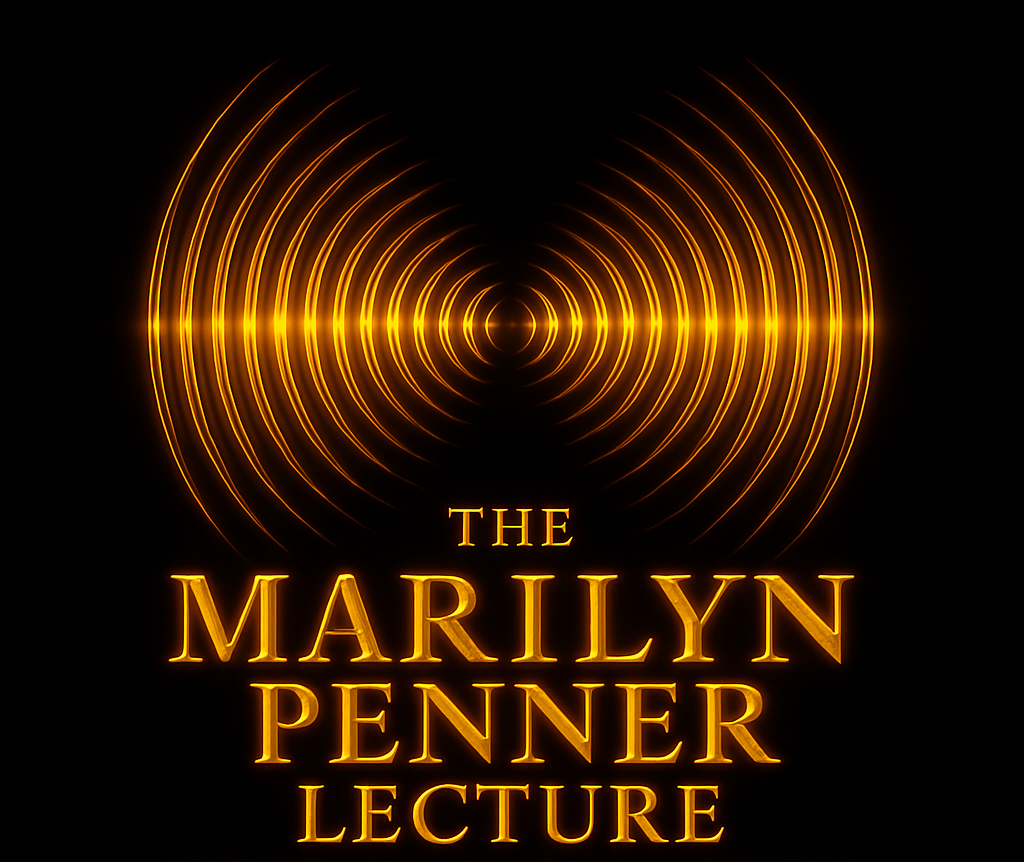
The Marilyn Penner Lecture on Psychoacoustics of Tinnitus
Marilyn J. Penner (University of Maryland) was an influential figure in auditory psychophysics whose research provided foundational insights into the psychoacoustic characteristics of tinnitus. Between 1980 and 1996, she conducted a pioneering series of studies examining how tinnitus could be measured, synthesised, masked, and matched using behavioural techniques. Her work explored forward and central masking, spontaneous otoacoustic emissions, and subjective loudness scaling—significantly advancing our understanding of the perceptual mechanisms underlying tinnitus experience.
The Marilyn Penner Lecture honours scientific contributions that deepen our understanding of the sensory, acoustic, and perceptual dimensions of tinnitus. It encourages critical reflection on how auditory function relates to subjective experience, and explores innovations in measuring loudness, pitch, and maskability to shape a more precise and person-centred approach to tinnitus science and care. Delivered by a leading auditory scientist, the lecture offers an overview of psychoacoustic research on tinnitus characteristics, key knowledge gaps, clinical implications, and future directions for behavioural and psychoacoustic paradigms in assessment and management. It provides an opportunity to take stock of measurement progress, identify unresolved questions, and set a research agenda for precision assessment in both clinical and experimental settings.
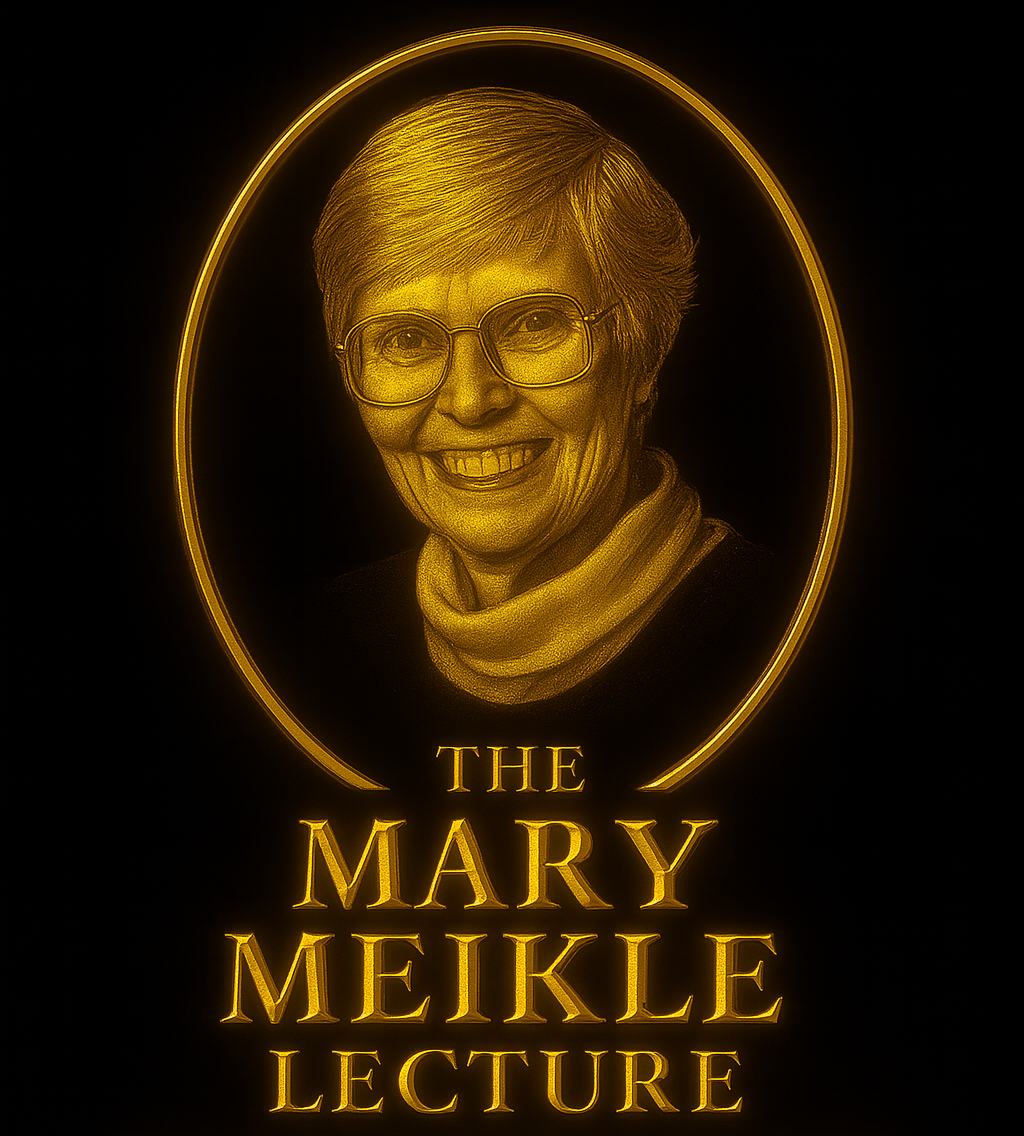
The Mary Meikle Lecture on Neurobiology of Tinnitus
Mary B. Meikle (1934–2011) was a pioneering researcher whose work helped define tinnitus as a neurobiological and measurable clinical condition. With a background in physiological psychology—an early term for behavioural neuroscience—she spent nearly 40 years at Oregon Health & Science University, where she became Professor of Otolaryngology and co-founded the American Tinnitus Association alongside Jack Vernon. Meikle was instrumental in developing outcome measures for tinnitus clinical trials, including co-leading the development of the Tinnitus Functional Index. Her contributions shaped both the scientific study and clinical understanding of tinnitus as a complex, brain-related phenomenon.
The Mary Meikle Lecture honours this legacy by recognising researchers who have advanced our understanding of the neurobiological underpinnings of tinnitus. It highlights foundational and emerging work in auditory neuroscience, neural plasticity, brain imaging, and translational models. Delivered by a senior researcher in the field, the lecture provides an overview of how brain mechanisms contribute to tinnitus perception, persistence, and distress, while exploring implications for prevention, diagnosis, and intervention.
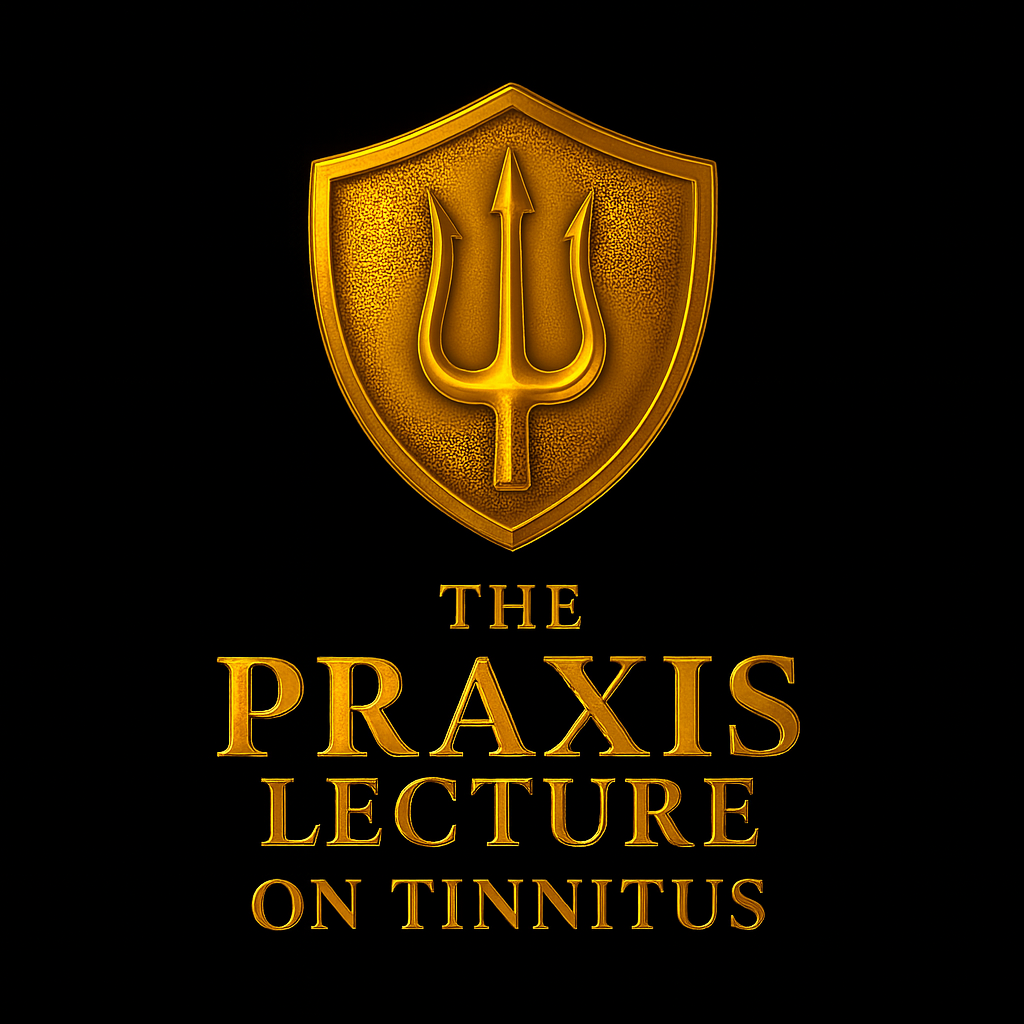
The Praxis Lecture on Tinnitus
The Praxis Lecture recognises researchers and clinicians whose work exemplifies the translation of science into practice. It honours individuals who have built bridges from theoretical insight to clinical application by developing diagnostics, treatments, and innovations that meaningfully improve patient care. This distinguished keynote celebrates action-oriented scholarship and real-world impact.
The term praxis refers to purposeful action that is grounded in knowledge and shaped by reflection. It is not simply about doing, but about doing informed by understanding and refined through experience. This mirrors the ethos of translational research, where bedside interventions and therapeutic innovations emerge from constructed knowledge derived from foundational science. The symbol of the trident reinforces this meaning. It evokes balance and direction. Its three points represent the unity of knowledge, action, and reflection. Each spearhead speaks to a distinct domain: scientific discovery, clinical implementation, and patient transformation. Together, they channel insight into impact.
Where other lectures may focus on ideas or critique, the Praxis Lecture is anchored in execution. It invites us to ask what has tangibly changed because of this work, how theory has reshaped practice, and how clinical practice has in turn enriched theory. The lecture is delivered by a leader whose work has advanced tinnitus care through innovative tools, clinical trials, service models, or training frameworks. In celebrating praxis, the lecture honours the full arc of progress from mechanism through meaning to method.

The Jack Vernon Torch Lecture
Jack A. Vernon (1922 to 2010), Professor Emeritus of Otolaryngology at Oregon Health Sciences University, was a pioneering research psychologist and cofounder of the American Tinnitus Association, alongside Mary B. Meikle. Widely regarded as the father of modern tinnitus science, Vernon dedicated his career to advancing both clinical understanding and public awareness of tinnitus. At a time when tinnitus was poorly understood and often dismissed, he helped build one of the world’s first dedicated tinnitus clinics in Portland, Oregon. There he cultivated a close-knit team of researchers and clinicians committed to developing evidence-based approaches and supporting those affected by the condition.
Vernon’s scientific work ranged from early innovations in masking and electrical stimulation to co-developing clinical measurement tools such as the Tinnitus Functional Index. He was a lead investigator on multiple comparative trials and published extensively on tinnitus characteristics, management, and pathophysiology. Yet it was his ethos of mentorship, generosity, and collaboration that left the most enduring impact.
The Jack Vernon Torch Lecture honours this spirit by recognising individuals who have shown exceptional commitment to developing others, who have mentored emerging professionals, fostered collaborative teams, and helped build a thriving, inclusive tinnitus research and clinical community. While the award celebrates a legacy of mentorship, the lecture itself typically focuses on the awardee’s own programme of research, highlighting how collaboration with students has shaped scientific progress, strengthened methodological innovation, and improved clinical care for patients. It reflects the belief that advancing the field depends not only on individual achievement but on cultivating the next generation through shared discovery and scholarly guidance.
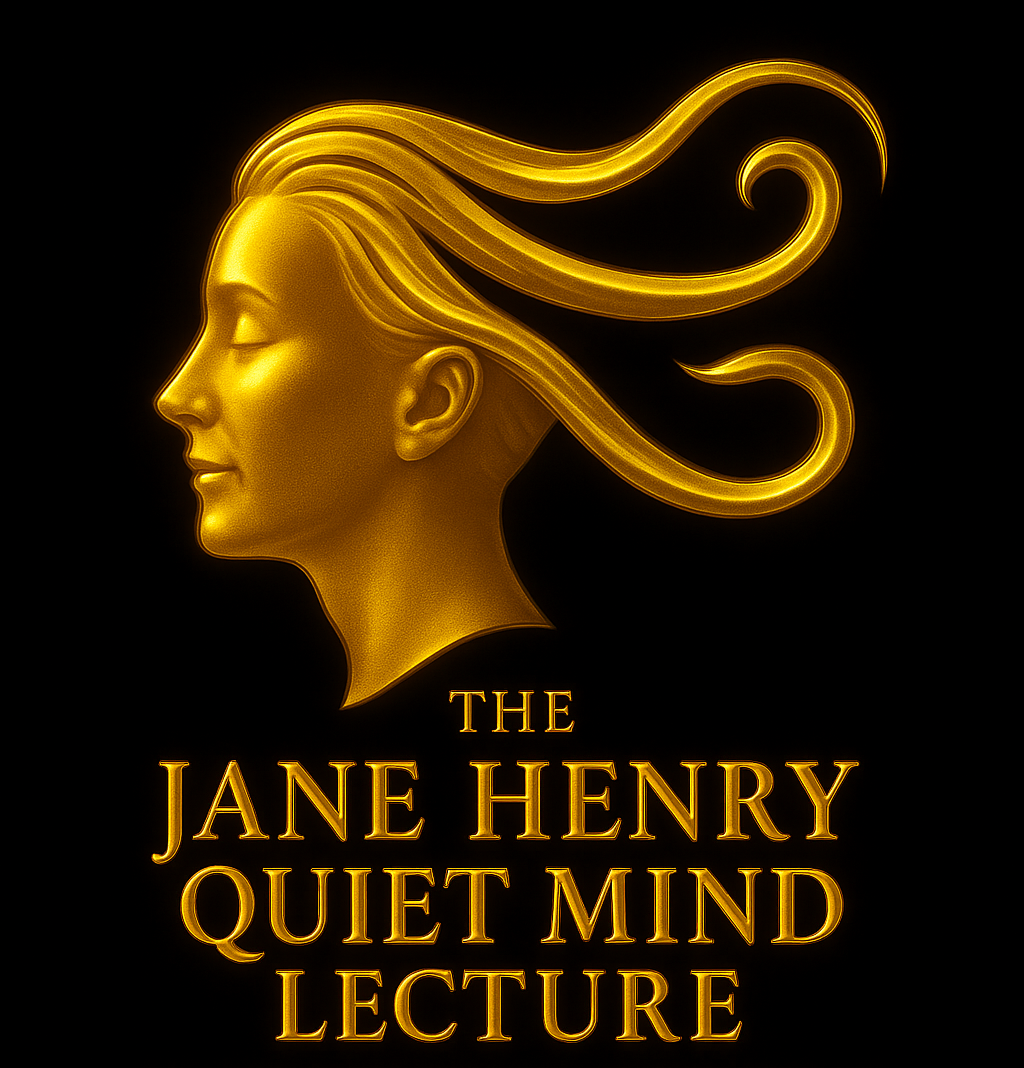
The Jane Henry Quiet Mind Lecture
Jane L. Henry (1961–2003) was a Senior Lecturer in Psychology and Director of the Psychology Clinic at the University of New South Wales, Sydney. After completing her BA (Hons), MPsychol, and PhD at the University of Sydney, she worked as a clinical psychologist across several hospitals before joining the UNSW School of Psychology in 1993. A respected figure in health psychology, she was best known for her pioneering work on the psychosocial aspects of tinnitus. With funding from the National Health and Medical Research Council, Henry developed and tested clinical protocols that addressed the emotional and cognitive distress associated with tinnitus. Her two influential books—The Psychological Management of Chronic Tinnitus: A Cognitive-Behavioral Approach and Tinnitus: A Self-Management Guide for the Ringing in Your Ears (co-authored with Peter H. Wilson)—continue to guide both clinicians and patients. Despite living with cancer, she remained committed to her work, teaching, publishing, travelling, and supporting others with intelligence, grace, and quiet determination.
The Jane Henry Quiet Mind Lecture honours transformative contributions to the psychological care of tinnitus. It recognises individuals whose work addresses the emotional and cognitive dimensions of the condition and advances evidence-based psychological therapies. Typically delivered by a leading researcher or clinician, the lecture highlights contributions to psychological theory, clinical trials, and therapeutic delivery that have shaped the mental health landscape of tinnitus care. It provides an overview of progress to date, identifies limitations and gaps in knowledge, and offers a forward-looking perspective on future directions for research and clinical practice.
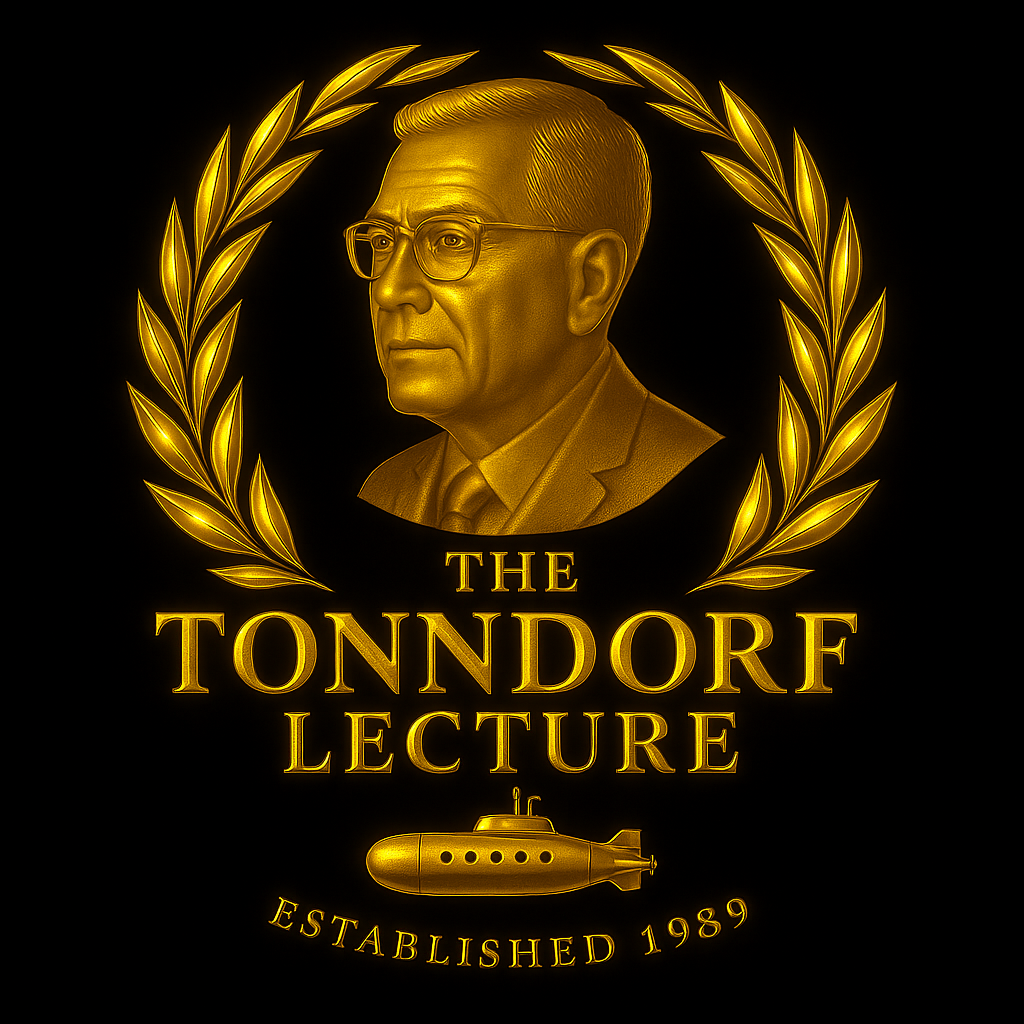
The Tonndorf Lecture
Guest of honour at the 1983 International Tinnitus Seminar, Juergen Tonndorf (1914–1989) was a pioneering auditory scientist whose work spanned cochlear mechanics, vestibular hydrodynamics, middle ear transmission, and sensory analogies. After earning medical degrees in Germany, he served as a WWII submarine physician and naval captain, then moved to the U.S. in 1947. There, he held influential academic positions and authored dozens of foundational studies that helped define modern auditory science. He is especially remembered for proposing a physiological analogy between tinnitus and chronic pain, arguing that both may emerge from persistent central representations following peripheral damage.
Tonndorf’s research illuminated inner ear physiology, hair cell behaviour, tympanic membrane mechanics, and the influence of anaesthesia on hearing. He contributed to the advancement of optical techniques to visualise eardrum motion and middle ear function, and explored electrical stimulation methods aimed at partial tinnitus suppression, using externally applied signals to study modulation effects in selected patients.
The Tonndorf Lecture honours this enduring legacy by inviting a researcher with an outstanding track record of contribution to reflect on the present and future progress of a particular area of tinnitus research or clinical practice, typically aligned with their own expertise, and to explore what is needed for the field to achieve meaningful and sustained advancement.
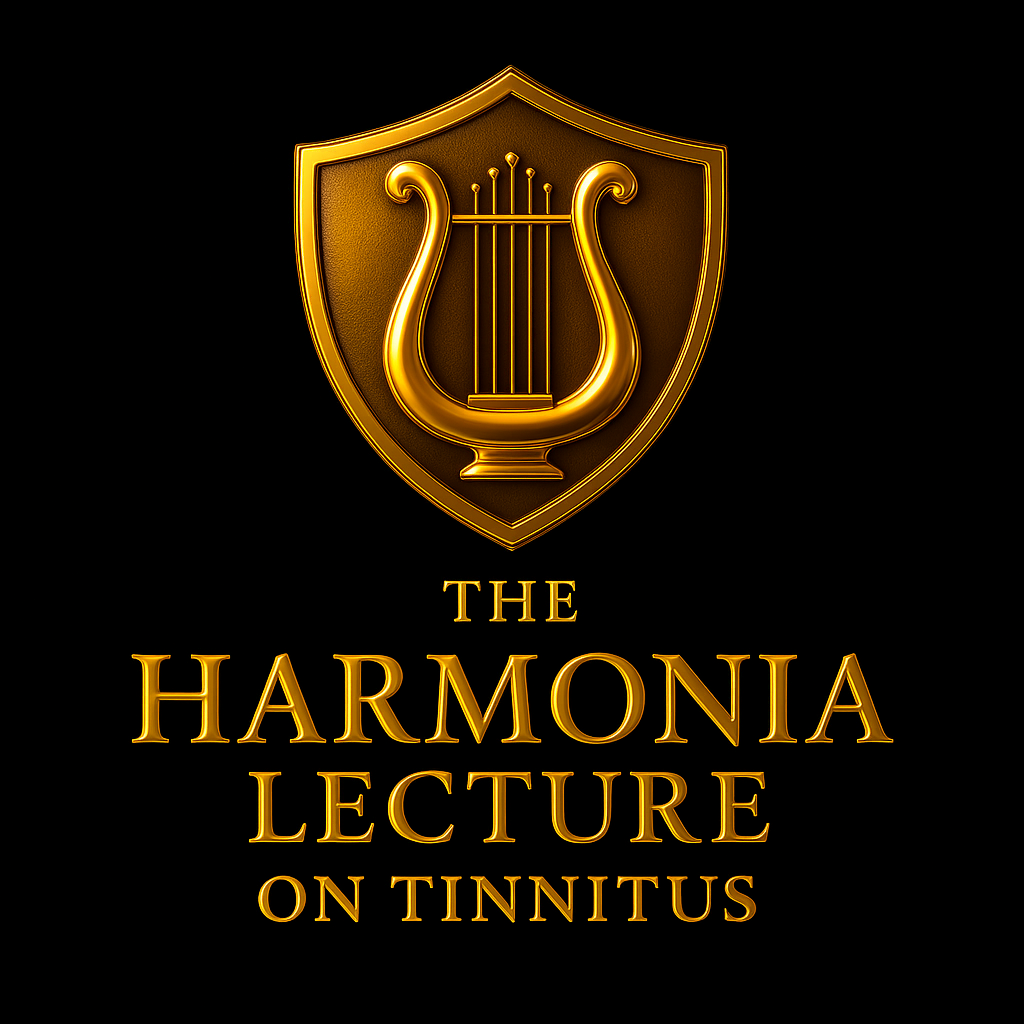
The Harmonia Lecture on Tinnitus
The Harmonia Lecture recognises researchers and thinkers whose work brings coherence to the field of tinnitus science. It honours individuals who have revealed hidden order within complexity, uniting neuroscience, engineering, psychology, and clinical insight into models that reframe our understanding. This distinguished keynote celebrates integrative scholarship and the creation of frameworks that guide discovery.
The term harmonia refers to the fitting together of parts into a balanced whole. It is not simply about combining elements, but about tuning them into resonance so that new patterns emerge. This mirrors theoretical synthesis, in which diverse findings are aligned, contradictions reconciled, and a shared structure for progress created. The symbol of the lyre reinforces this meaning. Its strings, when in proper tension, produce harmony only through proportion and balance. Each string represents a vital domain: cellular mechanism, brain network, perceptual experience, clinical manifestation, and technological innovation. Together they form a consonant vision of tinnitus as a system in which knowledge and application are held in equilibrium.
Where some lectures focus on single discoveries or practical applications, the Harmonia Lecture is anchored in integration. It explores the unifying principles that can be discerned from evidence, the new conceptual maps that have been drawn, and how these maps reshape future research and therapy. In celebrating harmonia, the lecture honours the intellectual architecture that allows science to find order, meaning, and direction.
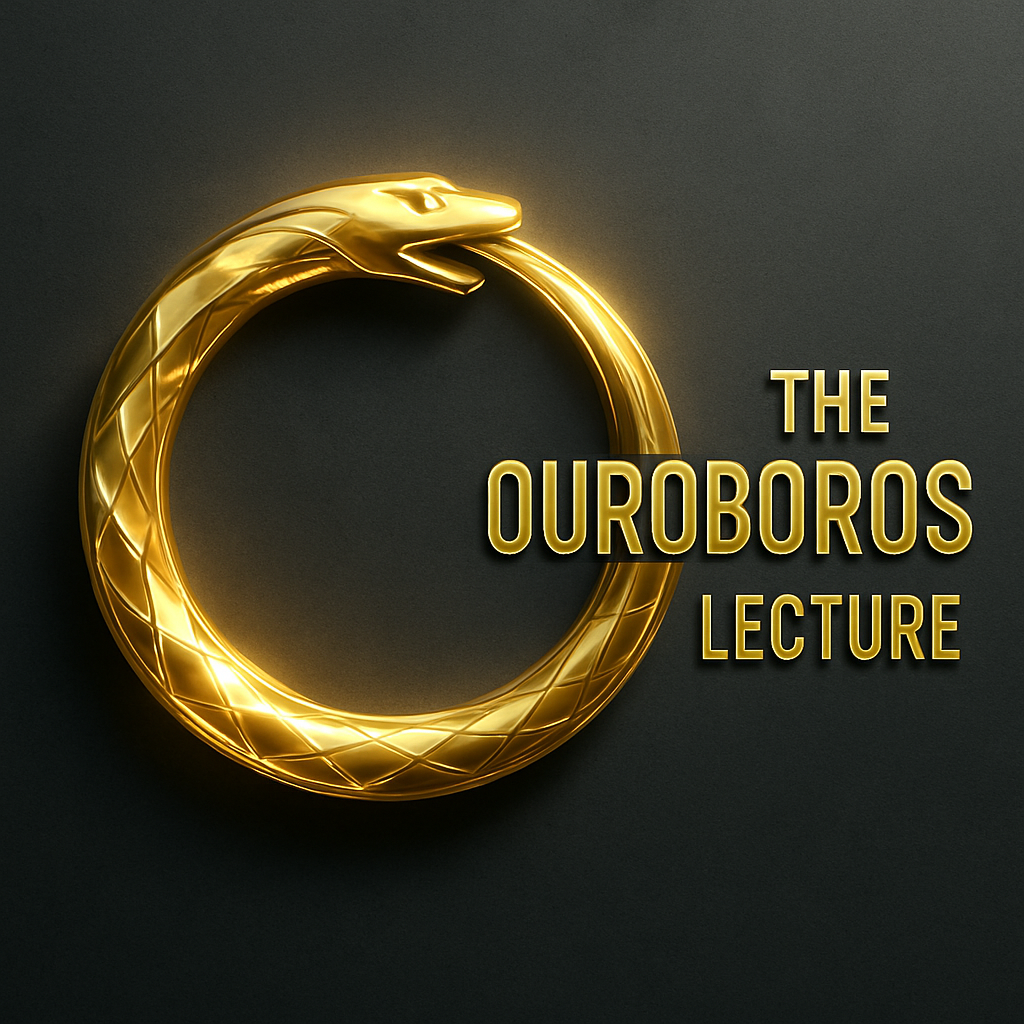
The Ouroboros Lecture
The Ouroboros Lecture is named after the ancient symbol of the serpent consuming its own tail—a representation of cyclical renewal, the unity of opposites, and recursive feedback. It embodies the core theme of the congress: From Mechanism to Meaning.
Tinnitus sits at the intersection of neural activity, psychological distress, personal narrative, and social meaning. The Ouroboros Lecture confronts this complexity head-on. It is awarded to a thought leader whose work transcends disciplinary boundaries—bridging neuroscience, psychology, clinical care, philosophy, and public understanding. Unlike other lectures that focus on specific data or modalities, this lecture reflects on framing itself. It challenges reductionism, explores epistemological blind spots, and invites integration: from signal to story, from circuit to care.
The lecture is both intellectual and symbolic—a moment to pause and examine the wider implications of tinnitus science. It reflects on what we measure, why we measure it, and who benefits. It reminds us that tinnitus is not just a symptom to be silenced but an experience to be understood.

